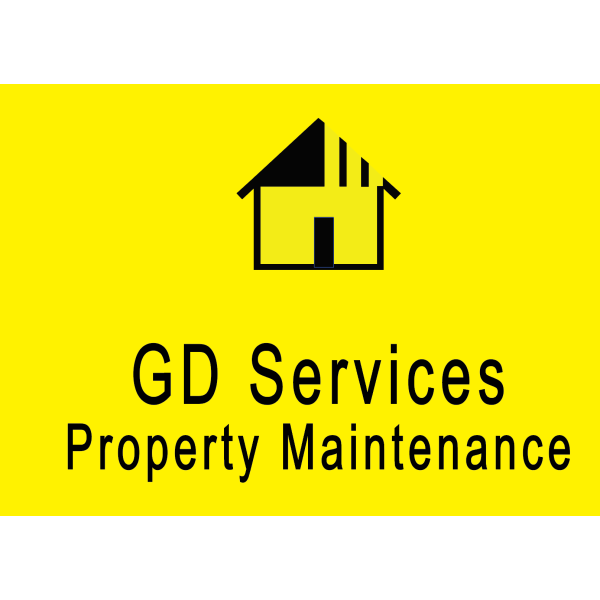Property Refurbishment in Weymouth
Welcome to Hari-Construction Services Ltd, your trusted partner for all building and property maintenance needs in Rossmore and across Do... read more »
Welcome to GD Services, your trusted partner for all your building and maintenance needs in Poole and across Dorset. As a family-run busi... read more »
Welcome to Seels Complete Build Ltd, your trusted partner for all building and refurbishment needs in Trickett's Cross and the wider Dors... read more »
Welcome to DPB Construction Ltd, your go-to experts for all things construction in Turlin Moo... read more »
Welcome to Cubycon Ltd., your trusted partner for all your home improvement needs in Springbourne and across Dorset. Specialising in plum... read more »
Welcome to Ashland Builders Ltd, your trusted partner for all your building needs in Poole and across Dorset. As a leadi... read more »
LG Building Poole Ltd is your go-to... read more »
Welcome t... read more »
Double K Developments: Premier Property Refur... read more »
Welcome to Ed Bartlett Building Contractor, your go-t... read more »
Welcome to Brothers Build Ltd, your trusted partner f... read more »
Welcome to Pinesprings Developments, your premier cho... read more »
Welcome to JPW UK Services Ltd, your trusted partner... read more »
Welcome to Coast Kitchens & Bathrooms, your premier c... read more »
Welcome to T.gas Services Plumbing and Heating and Pr... read more »
Welcome to... read more »
Welcome to Universal Building Company South Ltd, your... read more »
Welcome to JP Free Ltd, your trusted partner for all... read more »
Welcome to Renovation and Revamp Company, your truste... read more »
Search Property Refurbishment in places nearby
Understanding Property Refurbishment in Weymouth
Property refurbishment in Weymouth is a thriving industry, offering homeowners and investors the opportunity to revitalise and enhance their properties. Whether you're looking to update a tired home or increase the value of an investment property, refurbishment can be a rewarding endeavour. This article delves into the various aspects of property refurbishment, providing insights and guidance for those considering such a project in the charming coastal town of Weymouth.
The Appeal of Weymouth for Property Refurbishment
Weymouth, a picturesque seaside town in Dorset, is renowned for its stunning beaches, historic architecture, and vibrant community. The town's unique charm makes it an attractive location for property refurbishment. With its mix of traditional and modern properties, Weymouth offers a diverse range of refurbishment opportunities. The town's popularity as a tourist destination also means that refurbished properties can yield significant returns, whether through increased property value or rental income.
Historical Significance and Architectural Styles
Weymouth boasts a rich history, reflected in its diverse architectural styles. From Georgian townhouses to Victorian terraces, the town's properties offer a glimpse into its storied past. Refurbishing these properties not only preserves their historical significance but also enhances their aesthetic appeal. Understanding the architectural styles prevalent in Weymouth can guide refurbishment projects, ensuring they respect the town's heritage while incorporating modern comforts.
Economic and Tourism Growth
The economic growth and thriving tourism industry in Weymouth contribute to the appeal of property refurbishment. As more visitors flock to the town, the demand for quality accommodation increases. Refurbishing properties to cater to tourists can be a lucrative venture, offering the potential for high rental yields. Moreover, the local economy benefits from refurbishment projects, creating jobs and boosting local businesses.
Planning Your Property Refurbishment Project
Embarking on a property refurbishment project in Weymouth requires careful planning and consideration. From setting a budget to selecting the right contractors, each step is crucial to the success of the project. This section outlines the key factors to consider when planning your refurbishment.
Setting a Realistic Budget
One of the first steps in planning a refurbishment project is setting a realistic budget. It's essential to consider all potential costs, including materials, labour, permits, and unforeseen expenses. A well-defined budget helps prevent overspending and ensures the project remains financially viable. Consulting with professionals can provide valuable insights into cost estimation and budget management.
Choosing the Right Contractors
Selecting the right contractors is vital for a successful refurbishment. Experienced and reputable contractors can bring your vision to life while ensuring quality workmanship. When choosing contractors, consider their experience, references, and previous projects. It's also important to establish clear communication and expectations to avoid misunderstandings and delays.
Understanding Local Regulations and Permits
Property refurbishment in Weymouth may require adherence to local regulations and obtaining necessary permits. Understanding these requirements is crucial to avoid legal issues and ensure the project complies with local standards. Consulting with local authorities or a legal expert can provide guidance on the necessary permits and regulations for your specific project.
Key Areas of Focus in Property Refurbishment
Refurbishment projects can vary significantly depending on the property's condition and the owner's goals. However, certain areas often require attention to maximise the property's potential. This section explores key areas of focus in property refurbishment.
Structural Repairs and Improvements
Structural repairs are often a priority in refurbishment projects, ensuring the property's safety and stability. This may include addressing issues such as foundation cracks, roof leaks, or outdated electrical systems. Structural improvements can also enhance the property's functionality, such as adding extensions or open-plan living spaces.
Modernising Interiors
Modernising the interiors of a property can significantly enhance its appeal and value. This may involve updating kitchens and bathrooms, installing new flooring, or incorporating energy-efficient features. Modern interiors not only attract potential buyers or tenants but also improve the property's overall comfort and usability.
Enhancing Curb Appeal
Curb appeal plays a crucial role in a property's first impression. Refurbishing the exterior, such as repainting, landscaping, or updating windows and doors, can dramatically improve the property's appearance. Enhancing curb appeal is particularly important for properties intended for sale or rental, as it can attract more interest and increase perceived value.
Financing Your Refurbishment Project
Financing is a critical aspect of property refurbishment, determining the project's scope and feasibility. Understanding the various financing options available can help you make informed decisions and ensure the project's success.
Personal Savings and Budgeting
Many property owners choose to finance refurbishment projects through personal savings. This approach avoids debt and interest payments, but it requires careful budgeting and financial planning. Setting aside funds specifically for refurbishment can help manage costs and prevent financial strain.
Loans and Mortgages
Loans and mortgages are common financing options for property refurbishment. Home improvement loans or remortgaging can provide the necessary funds for larger projects. It's important to compare different lenders and interest rates to find the most favourable terms. Consulting with a financial advisor can also provide valuable insights into the best financing options for your situation.
Government Grants and Incentives
In some cases, government grants or incentives may be available for property refurbishment projects. These programs often focus on energy efficiency improvements or heritage property restoration. Researching available grants and incentives can provide additional funding and reduce overall project costs.
Challenges and Solutions in Property Refurbishment
Property refurbishment can present various challenges, from unexpected structural issues to budget overruns. However, with careful planning and problem-solving, these challenges can be overcome. This section explores common challenges and potential solutions in property refurbishment.
Dealing with Unexpected Issues
Unexpected issues, such as hidden structural damage or outdated wiring, can arise during refurbishment projects. Conducting thorough inspections before starting the project can help identify potential problems early. Additionally, setting aside a contingency fund can provide financial flexibility to address unforeseen issues.
Managing Time and Deadlines
Time management is crucial in refurbishment projects, particularly when working with multiple contractors. Establishing a clear timeline and regular communication with contractors can help ensure the project stays on track. Flexibility and adaptability are also important, as unexpected delays may occur.
Maintaining Quality and Standards
Maintaining quality and standards is essential for a successful refurbishment. This involves selecting high-quality materials, ensuring skilled workmanship, and adhering to local regulations. Regular inspections and quality checks throughout the project can help maintain standards and prevent costly mistakes.
Maximising the Value of Refurbished Properties
Maximising the value of refurbished properties is a key goal for many homeowners and investors. This section explores strategies to enhance the value and appeal of refurbished properties in Weymouth.
Targeting the Right Market
Understanding the target market is crucial for maximising property value. Whether aiming to sell or rent the property, tailoring the refurbishment to meet the needs and preferences of the target audience can increase its appeal. For example, properties intended for families may benefit from additional bedrooms or outdoor spaces, while those targeting young professionals may focus on modern interiors and technology integration.
Highlighting Unique Features
Highlighting unique features of the property can set it apart from others on the market. This may include original architectural details, energy-efficient systems, or high-end finishes. Emphasising these features in marketing materials can attract more interest and justify a higher asking price.
Professional Staging and Marketing
Professional staging and marketing can significantly impact the perceived value of a refurbished property. Staging involves arranging furniture and decor to showcase the property's potential, while effective marketing highlights its features and benefits. Engaging a professional real estate agent or marketing expert can enhance the property's presentation and reach a wider audience.
Frequently Asked Questions
What is the average cost of property refurbishment in Weymouth?
The cost of property refurbishment in Weymouth varies depending on the property's size, condition, and the extent of the work required. On average, refurbishment projects can range from £10,000 to £100,000 or more. It's important to obtain detailed quotes from contractors to understand the specific costs involved.
How long does a typical refurbishment project take?
The duration of a refurbishment project depends on its complexity and scope. Simple projects may take a few weeks, while extensive renovations can last several months. Establishing a clear timeline with contractors can help manage expectations and ensure timely completion.
Do I need planning permission for property refurbishment in Weymouth?
Planning permission may be required for certain refurbishment projects, particularly those involving structural changes or extensions. It's important to consult with local authorities or a planning expert to determine the necessary permits for your specific project.
Can refurbishment increase the value of my property?
Yes, refurbishment can significantly increase the value of a property by improving its condition, functionality, and appeal. Well-executed refurbishments can yield a high return on investment, particularly in desirable locations like Weymouth.
What are the benefits of hiring a professional for my refurbishment project?
Hiring a professional for your refurbishment project ensures quality workmanship, adherence to regulations, and efficient project management. Professionals bring expertise and experience, helping to avoid costly mistakes and ensuring the project's success.
Are there any grants available for property refurbishment in Weymouth?
There may be grants or incentives available for property refurbishment in Weymouth, particularly for energy efficiency improvements or heritage property restoration. Researching available programs and consulting with local authorities can provide information on potential funding opportunities.
In conclusion, property refurbishment in Weymouth offers a wealth of opportunities for homeowners and investors alike. With careful planning, attention to detail, and a focus on quality, refurbishment projects can transform properties, enhance their value, and contribute to the town's vibrant community. Whether you're updating a family home or investing in a rental property, refurbishment can be a rewarding and profitable endeavour in this charming coastal town.
Send a message









